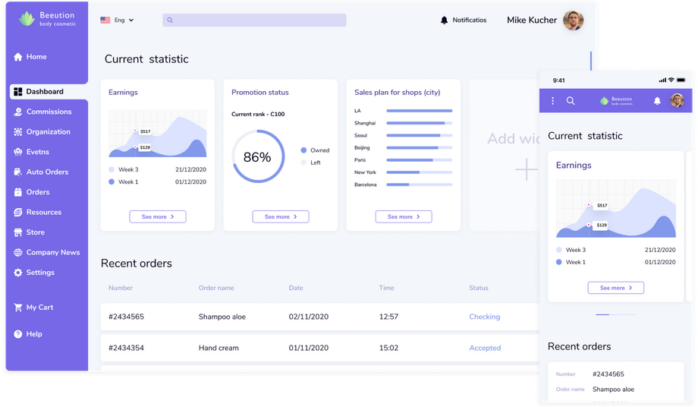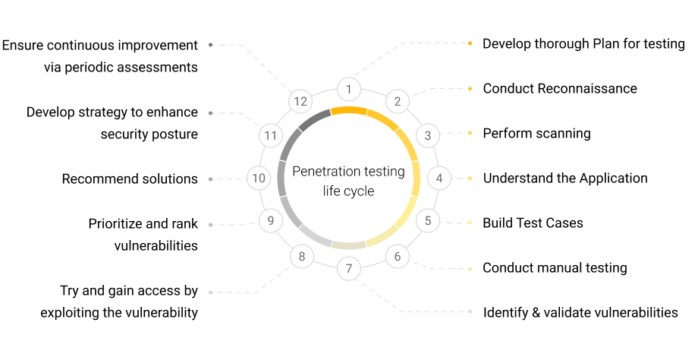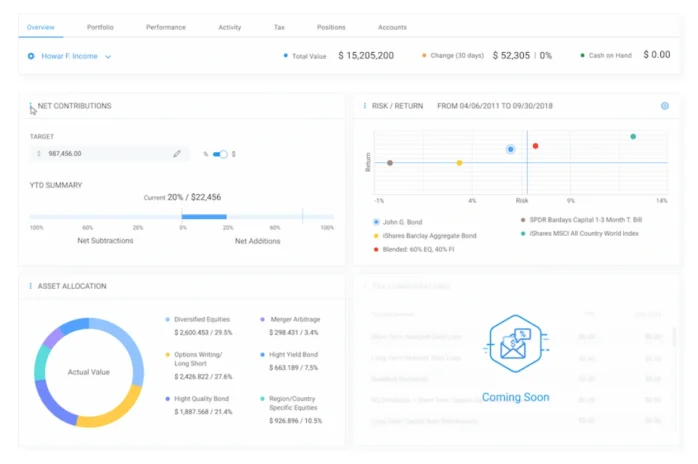Best Ad
What Is Better: Custom eCommerce Solutions or Ready-Made Products?

Custom vs out-of-the-box eCommerce solutions
If a company is rebuilding its old eCommerce website or creating a new one, the first question to arise is: “Should we use custom development or a ready-made CMS?” To answer, you need to consider a combination of factors: business specifics, marketing, system requirements, and much more. In this article, we will discuss what advantages custom eСommerce solutions can have over an off-the-shelf CMS.
What off-the-shelf development is
Off-the-shelf (product) development implies a standard product intended for a wide range of users. An example of such a solution is a CMS (content management system).
A CMS is software or a dedicated platform, using which you can create content on a website, manage it, and make changes without having to write the entire code from scratch. In other words, without a CMS, an HTML file has to be created and uploaded to the server, while this platform allows you to simply enter your text in the system interface so that it is displayed on the website.
Some CMSs are domain-specific (for instance, Magento), but most of them can be used for building virtually any type of website (blogs, online courses, portfolios, and so on).
The user manages the content from the internal user interface, using ready-made functions and templates – all this without knowing the specifics of programming. Creating a website with a CMS is similar to playing with Lego – you are allowed to choose which bricks are best for building a web application. An experienced developer can customize a CMS by using plugins and extensions and program it in such a way that the software will work better than any custom website.

A few words about custom development
Сustom eCommerce development implies a tailor-made solution for a particular business, brand, organization, or person. To build a website from scratch, developers use open source libraries and frameworks when writing a large portion of the code specifically for each client. This provides a means for getting more secure, reliable, and unique software.
Moreover, depending on the business goals and the system complexity, custom eCommerce development may be the only viable option for a website. This means that all its features and capabilities are designed to help a brand. Plus, the IT company will release new software updates when needed.
Сustom eСommerce solutions vs building a website on a CMS
According to statistics for 2020, there are more than 1.7 billion websites on the Internet, and about 28% of them use a CMS.
Why are CMSs so popular? Here are a few arguments in their favor:

• Low cost
Any way you slice it, building a website architecture from scratch requires a larger budget than a ready-made CMS. Since platforms for managing content give access to already working features, these tools are way cheaper than custom development services. Despite the fact that programmers can sometimes reuse their code, creating a new button for a website takes more time and effort than editing it in a CMS.
• Rapid development
CMSs also have an advantage in the speed of website development since they are configured from the very beginning. Depending on the project goals, it can take developers from one day to several weeks to set up a web application. The variety of themes and plugins on offer eliminates the need to spend months coding and integrating specific features.
• Ease of maintenance
A CMS makes it easy to add any changes through a user-friendly interface and customize the theme to your liking. It also provides platform support if something goes wrong on the system side.
• Instant content updates
CMSs allow users to control and modify content in real-time from any computer connected to the Internet. There is no need to wait for administrators or developers – the content is always fresh and relevant.
• Multiple user support
A CMS comes with an out-of-the-box administration interface. This allows multiple users to simultaneously log in and edit content in parallel while maintaining control over versions. Implementing something like this in custom software can be very difficult.
Advantages of custom development
The top 10 most popular websites according to Alexa – such as Google.com, Youtube.com, Tmall.com, and others – were created without using any CMS. This fact clearly illustrates the importance of custom eСommerce solutions to a company’s success.
Let’s list the main advantages of tailor-made solutions:
• Visually attractive websites
Custom development provides more opportunities to make your website visually appealing, easy-to-use, and effective. This, in turn, helps to attract users.
Recent sales research has found that around 32% of Internet Marketers consider visual content to be the most important form of marketing. About 40% of specialists say that unique visual effects are the most interesting for users. They make it possible to anticipate customer expectations and tailor the buying process to their needs.

• Scalability and better search engine positioning
The CMS is tied to the core with predefined standard functions. This restricts the website from performing all the improvements necessary for a particular business. Today’s companies plan to scale their websites in order to implement something more complex or improve their performance and accessibility. In this case, it is recommended to opt for custom development. As practice shows, CMS platforms are not suitable for creating truly scalable solutions.
• Higher security level
In a standard CMS, the responsibility for security lies on the shoulders of the platform provider. This is convenient, as the need to invest resources in the development and maintenance of website protection is obviated. But often large CMS platforms with standard security protocols become easy prey for hackers. In addition, the CMS works with various third-party plugins, which can pose a threat.
For example, attacks on the WordPress platform account for 94% of all hacker attacks, which indicates the extreme vulnerability of this CMS. The main reason for successful app hacks is the obsolescence of plugins, modules, and extensions. Custom eCommerce solutions can guarantee a greater degree of security.

• Better website performance
Better website performance also speaks in favor of custom development. Here, only the clean code needed to meet the project’s requirements is used. A standard CMS has a lot of unnecessary code, which negatively affects the performance of the website.
It’s logical to assume that high page loading speed leads to better conversion rates. In other words, the faster the web page loads, the more likely the user will perform the targeted action (for example, order a product or service).
• Easy integration
The way employees from different departments communicate and work together determines the success of the business nine times out of ten. For example, an organization has human resources and accounting departments that must interact in order to calculate employee salaries. This means that if one department uses a certain application, it must be integrated into the other department.
A good dedicated software solution is supposed to enable collaboration and data exchange. The development of a solution that fits your specific business model allows your enterprise to carry out the necessary integration right from the start.

eCommerce software development: 5 cases when a CMS should be abandoned
In eCommerce, there are cases that require custom development. Let’s consider some of them.
Case 1. When there are customizable or modular products.
Sometimes the owner of an online store wants to provide their clients with the ability to customize the products they buy. This diversity can only be presented with custom eСommerce solutions. For example, it is requested to develop functionality for a T-shirt store catalog, which will allow customers to choose the size, color, fonts, and graphics on each T-shirt. The combination of these variables results in different product prices. The CMS won’t be able to cope with processing such complicated orders.
Case 2. When there are special rules for a particular industry.
For some industries, special regulations are imposed – for example, regarding product delivery. Each carrier also has its rules related to prohibited items. For instance, the U.S. Postal Service does not permit the domestic transportation of such items as airbags and gasoline or the transportation of aerosols and dry ice abroad. Custom eСommerce solutions are the perfect fit to meet industry shipping standards.
Case 3. When there are specific promo codes.
CMSs may limit the number of coupons and promo codes, as well as the rules for obtaining them. For example, if you want to allow customers to apply a code only to certain products or prohibit the use of a coupon for some brands, you will need a specially designed website.
Case 4. When there are unique needs in reporting.
Users may want to view the history of their orders for a particular period. To get a function for creating such reports, you will need the help of an eCommerce development company like AndersenLab.
Case 5. When there is a need to link suppliers and warehouse stocks.
Developing a custom website solves another problem for a growing business – the ability to maintain a sufficient number of products in stock. For this purpose, you have to contact suppliers so that they replenish stocks when they run out. eCommerce software development connects the website to an inventory management system and supplier network to automatically replenish stocks. When goods run out, the program creates an order and sends it to the supplier. This format will help to avoid a lack of popular goods on sale.

Conclusion
There are many situations indicating that a business needs to opt for custom eСommerce solutions. To choose the best technology option – a CMS or custom development – it is recommended to consult with IT experts. But it’s important to know that, no matter what size your business is, custom development will allow you to create a unique manageable website. Such a website adapts to a company’s needs, positioning the brand better and helping to increase sales. Therefore, your organization will be able to grow and develop along with your website while having security guarantees.


0 Comments